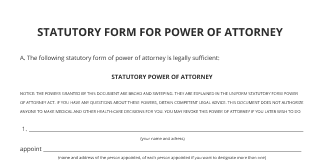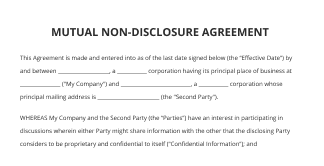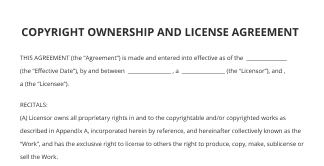eSign Buy Sell Agreement Made Easy
Improve your document workflow with airSlate SignNow
Agile eSignature workflows
Fast visibility into document status
Simple and fast integration set up
E sign buy sell agreement on any device
Advanced Audit Trail
Strict security standards
See airSlate SignNow eSignatures in action
airSlate SignNow solutions for better efficiency
Our user reviews speak for themselves






Why choose airSlate SignNow
-
Free 7-day trial. Choose the plan you need and try it risk-free.
-
Honest pricing for full-featured plans. airSlate SignNow offers subscription plans with no overages or hidden fees at renewal.
-
Enterprise-grade security. airSlate SignNow helps you comply with global security standards.

Your step-by-step guide — e sign buy sell agreement
Leveraging airSlate SignNow’s eSignature any organization can enhance signature workflows and eSign in real-time, delivering an improved experience to consumers and employees. Use eSign Buy Sell Agreement in a few easy steps. Our handheld mobile apps make work on the run possible, even while off-line! Sign documents from any place worldwide and complete tasks in no time.
Follow the stepwise guide for using eSign Buy Sell Agreement:
- Log on to your airSlate SignNow account.
- Locate your needed form within your folders or import a new one.
- Open the template adjust using the Tools list.
- Drop fillable boxes, add text and eSign it.
- List several signers via emails and set the signing order.
- Choose which recipients will get an signed version.
- Use Advanced Options to limit access to the record and set up an expiry date.
- Click on Save and Close when completed.
Furthermore, there are more extended functions available for eSign Buy Sell Agreement. Add users to your shared digital workplace, view teams, and monitor collaboration. Millions of users across the US and Europe agree that a solution that brings everything together in one holistic enviroment, is the thing that companies need to keep workflows functioning easily. The airSlate SignNow REST API enables you to embed eSignatures into your application, internet site, CRM or cloud. Try out airSlate SignNow and get faster, smoother and overall more productive eSignature workflows!
How it works
airSlate SignNow features that users love
See exceptional results eSign Buy Sell Agreement made easy
Get legally-binding signatures now!
FAQs
-
How do you sign an agreement electronically?
To sign an agreement electronically, choose airSlate SignNow as your electronic signature solution. With its high-volume eSignature features, airSlate SignNow makes it easy for your company to send and eSign your documents quickly and efficiently. With airSlate SignNow, you can increase productivity with document workflows, impress customers, and save money while maximizing ROI. Whether you're a small business owner or an employee accountable for documents, airSlate SignNow has the expertise to provide you with customizable eSignature workflows that will make your life easier. -
Can closing on a house be done electronically?
Yes, you can close on a house electronically with airSlate SignNow. This electronic signature solution provides high-volume eSignature features that increase productivity with document workflows, impress customers, and save money while maximizing ROI. With airSlate SignNow, small/medium businesses, managers, and employees accountable for documents can confidently and easily manage their eSignature workflows, making them fast and efficient. Join the thousands of businesses that trust airSlate SignNow to improve their document workflows and sign with confidence. -
How do you sign a contract via email?
To sign a contract via email, you can use airSlate SignNow - an electronic signature solution that allows you to easily send and eSign documents, saving you time and increasing productivity. With its high-volume eSignature features, you can impress customers and save money while maximizing your ROI. Whether you're a small business owner or an employee accountable for documents, airSlate SignNow can help you streamline your document workflows and provide a seamless signing experience. Try airSlate SignNow today and start signing contracts with confidence and ease. -
How long after closing is seller paid?
airSlate SignNow offers a quick and efficient electronic signature solution that enables a seller to get paid right after closing. With its high-volume eSignature features, users can easily create, send, and sign documents online while ensuring security. By streamlining document workflows, businesses can accelerate productivity, impress customers, and save costs, ultimately maximizing ROI. airSlate SignNow is the ideal choice for small/medium businesses, managers, and employees accountable for sending documents as it offers a unique style that is straightforward, inspirational, and confident. -
How can I get a contract signed online?
airSlate SignNow is an electronic signature solution that simplifies the signing process for businesses of all sizes. With high-volume eSignature features, users can streamline their document workflows and save time while impressing customers with the convenience of online signatures. Plus, airSlate SignNow is a cost-effective solution that maximizes ROI, making it an excellent choice for small and medium businesses looking to free themselves from manual signing processes. By using airSlate SignNow, SMBs and mid-market companies can increase productivity and take their businesses to the next level. -
Can you close on a house online?
Yes, with airSlate SignNow, you can close on a house online using high-volume eSignature features. airSlate SignNow gives you the ability to streamline document workflows and saves time, money, and resources. It impresses customers with the quick turnaround time, and maximizes ROI, making it a great investment for your small/medium business. With airSlate SignNow, you can confidently sign documents electronically without any hassle and with the utmost security. -
How do I sign a document electronically?
To sign a document electronically, airSlate SignNow is an excellent solution powered by high-volume eSignature features that help businesses move fast with streamlined document workflows for increased productivity. With airSlate SignNow, managers and employees can impress customers with secure and customizable eSignature workflows while saving money and maximizing ROI. As a citizen with a small/medium business, airSlate SignNow helps to make signing documents a seamless experience, increasing efficiency, and demonstrating professionalism to potential business partners. -
What is a hybrid eClosing?
airSlate SignNow is an electronic signature solution that enables companies to streamline their document workflows with high-volume eSignature features. With airSlate SignNow, users can increase productivity, impress customers, and save money while maximizing ROI. With airSlate SignNow, citizens with their own small/medium businesses, managers, and employees accountable for documents can trust in a customizable eSignature solution that is straightforward, inspirational, and backed by expertise. -
Is Bill of Sale same as purchase agreement?
No, a Bill of Sale is not the same as a purchase agreement. A Bill of Sale is a document that transfers ownership of personal property, while a purchase agreement is a contract that outlines the details of an anticipated sale including payment terms, delivery dates, and other important elements involved in a sales transaction. airSlate SignNow is an electronic signature solution that enables small/medium businesses to move fast with high-volume eSignature features. With airSlate SignNow, users can increase productivity with document workflows, impress customers, and save money while maximizing ROI. Whether you're a manager or employee accountable for documents, airSlate SignNow offers a customizable eSignature platform that can help streamline your workflow and make your business more efficient. -
Do buyers have to be present at closing in Florida?
Yes, buyers are generally required to be present at closing in Florida. However, some exceptions may apply, such as for out-of-state buyers who have arranged for a remote closing. In these cases, the buyer may sign documents electronically using an eSignature solution like airSlate SignNow, which can streamline the process and increase efficiency. With airSlate SignNow, users can easily create document workflows, impress customers with a professional and modern signing experience, and save time and money while maximizing ROI. -
How do I create a legal digital signature?
Creating a legal digital signature is easy with airSlate SignNow's comprehensive electronic signature solution. With high-volume eSignature features, users can increase productivity with efficient document workflows, impress customers with ease and speed, and save money while maximizing ROI. Whether you're a small business owner, manager, or employee, airSlate SignNow empowers you to streamline document signing and management with customizable workflows tailored to your specific needs. So why wait? Try airSlate SignNow today and start streamlining your signature process! -
Does a bill of sale need to be typed?
Yes, a bill of sale can be written by hand or typed, depending on the preferences of the parties involved. However, airSlate SignNow offers a more efficient and effective way of handling documents with its high-volume eSignature features. By using airSlate SignNow, users can streamline their document workflows, impress customers with fast and secure transactions, and save money while maximizing their ROI. With airSlate SignNow, businesses of all sizes can enjoy the benefits of customizable and reliable electronic signatures. -
Can I make my own bill of sale?
Yes, you can create your bill of sale using airSlate SignNow's electronic signature solution. With airSlate SignNow, you can increase productivity with high-volume eSignature features, impress customers with customizable document workflows, and save money while maximizing ROI. As a citizen with a small or medium business, manager, or employee accountable for documents, airSlate SignNow is the perfect solution to streamline your document workflow and provide a seamless eSignature experience. -
How do I send an electronic signature?
Sending electronic signatures is a breeze with airSlate SignNow. With advanced eSignature features, users can increase productivity and save money by streamlining document workflows. airSlate SignNow also makes it easy to impress customers with customizable and professional-looking eSignature solutions. Start maximizing your ROI with airSlate SignNow today!












































